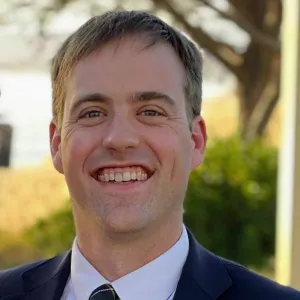Stay ahead of the curve as a political insider with deep policy analysis, daily briefings and policy-shaping tools.
Request a DemoIn the aftermath of yet another Georgia election runoff this December, Secretary of State Brad Raffensperger called for reform to Georgia’s election system. Raffensperger was right to call for reform; in a recent AJC poll, 58% of respondents favored changing the current election model.
It’s no surprise that voters are fed up. The current system, where any election goes to a runoff when a candidate doesn’t clear 50% of the vote, is a burden on voters, the State, and the candidates for office.
The state legislature should act now to fix this by implementing open primary, ranked choice voting statewide for a fairer, more responsive, and more efficient electoral system.
This might sound complicated at first, but really it’s quite simple. An open primary means all candidates, regardless of party, compete on equal footing to be included in the general election. Ranked choice means that in the general election, voters rank their candidates in order of preference. Instant runoff means that if a winner doesn’t emerge in the first count, then a runoff is held instantly to determine the winner, rather than holding an additional election.
Each of these pieces represents a specific improvement over the current system.
First, the open primary: In the primary, any candidate who meets the qualification criteria regardless of party should be eligible, with the most popular of these candidates moving on to the general election.
Instead, in the current system, the state holds primaries on behalf of the Democratic and Republican parties and guarantees the winners of those primaries spots in the general election. This is obviously unfair – the sports equivalent of holding a spot in the playoffs for a team regardless of their record in the regular season.
It is in the state’s interest to make sure there is a reasonable number of candidates for the general election, not to facilitate the Republican or Democratic candidate selection process on behalf of those parties. We should stop doing it.
Second is ranked choice: this means that in the general election, voters get the opportunity to rank the candidates they want.
The simple change of ranking candidates gives voters substantially more control over outcomes. How often in recent years have voters had to hold their noses and vote for someone they don’t support because they don’t want to waste their vote on someone who can’t possibly win? In a ranked choice system, this dilemma goes away – the voter can simply rank the choices. This in turn sends politicians a clearer message of what voters want, increasing the chances that they get it in the future.
Some people think that ranking might be confusing for voters, but I think this is overplayed. Do we really think a meaningful portion of the electorate can’t grasp the concept of “first favorite, second favorite, third favorite”?
Finally, the instant runoff: if no candidate receives the majority of first-choice votes, the candidate with the fewest first-choice votes is dropped out and their votes are transferred to the voter’s next ranked candidate. This continues until a candidate has a majority.
Georgia voters of the last several cycles will spot the improvement here instantly. Georgia’s current system of in-person runoffs is a massive waste of public resources. The 2020 Senate runoff cost Georgia taxpayers more than $75 million and the 2022 Senate runoff is likely to cost a similar number. And it’s not like runoffs are rare events – since 2016, there have been 22 separate runoff events, an average of 3.5 per year. This is a lot of wasted money!
And this is just the cost of running the election, to say nothing of the time lost to voters who have to wait in line to vote again or the candidates who spend another month out on the campaign trail. It might not seem like a big deal for Rev. Raphael Warnock or Herschel Walker to do another month of campaigning, but most public servants aren’t running for U.S. Senate. They’re more like Sarah Beeson and Allen Sells, candidates for my local city council in Roswell, who had to spend another month away from their families and campaigning for a part-time job rather than doing the work of governing. The more time intensive we make it to serve in local government, the less people are going to decide it is worth it to serve.
If this sounds new, consider that both Alaska and Maine are already using a version of this system, so we can say with confidence that it works from coast-to-coast, and Nevada voters passed a referendum to adopt a similar system just last year.
Excitingly, there is movement in Georgia. House Bill 200 would allow municipalities the option of experimenting with ranked choice, instant runoff voting for their elections. This is a step in the right direction, but it doesn’t go far enough, as participation is purely optional. With almost 60% of Georgians dissatisfied with the current system, the legislature should take real action to improve the electoral system by adopting open primary, ranked choice voting statewide for a fairer, more responsive, and more efficient democracy.
James Edward Dillard is a product leader for innovative technology companies and a resident of Roswell, Georgia. He aspires to make Georgia the highest trust society it can be.
Header image: James Edward Dillard
Newly minted Senate Minority Leader Harold Jones II: ‘I’m not the typical back-slapping politician’
Nearly 10 years into legislative life, Sen. Harold Jones II wouldn’t change anything about the experience. “I love every minute of it. Even when I hate it, I love it,” the 55-year-old Augusta Democrat told State Affairs. Come January, Jones will add another role to his legislative duties: Senate minority leader, a job held for …
Gov. Kemp calls on state agencies to be fiscally restrained amid record $16.5B surplus
The Gist Gov. Brian Kemp asked the state’s 51 government agencies for continued fiscal restraint when drafting their amended fiscal year 2025 and 2026 budgets. Most agencies adhered to his request even as the state’s general fund surplus hit a record $16.5 billion last month. Forty-five agencies, excluding state courts, followed the governor’s instructions to …
Georgia defies bomb threats as election chief declares a “free, fair and fast” vote amid record turnout
ATLANTA – Despite dealing with over 60 bomb threats, Georgia’s election chief said Tuesday the state’s general election went smoothly. Georgia had a record turnout with nearly 5.3 million people voting, Secretary of State Brad Raffensperger told reporters. Election officials in the state’s 159 counties have until 5 p.m. to certify votes. “We had a …
In the (state)house: Meet the newest members of the Georgia legislature
When lawmakers reconvene at the state Capitol on Jan. 13, there’ll be a cadre of new faces in the 236-member Georgia General Assembly, one of the nation’s largest state legislatures. All 236 statehouse seats were up for election this year. Most candidates ran unopposed. Incumbents in contested races easily kept their seats, with the exception …





